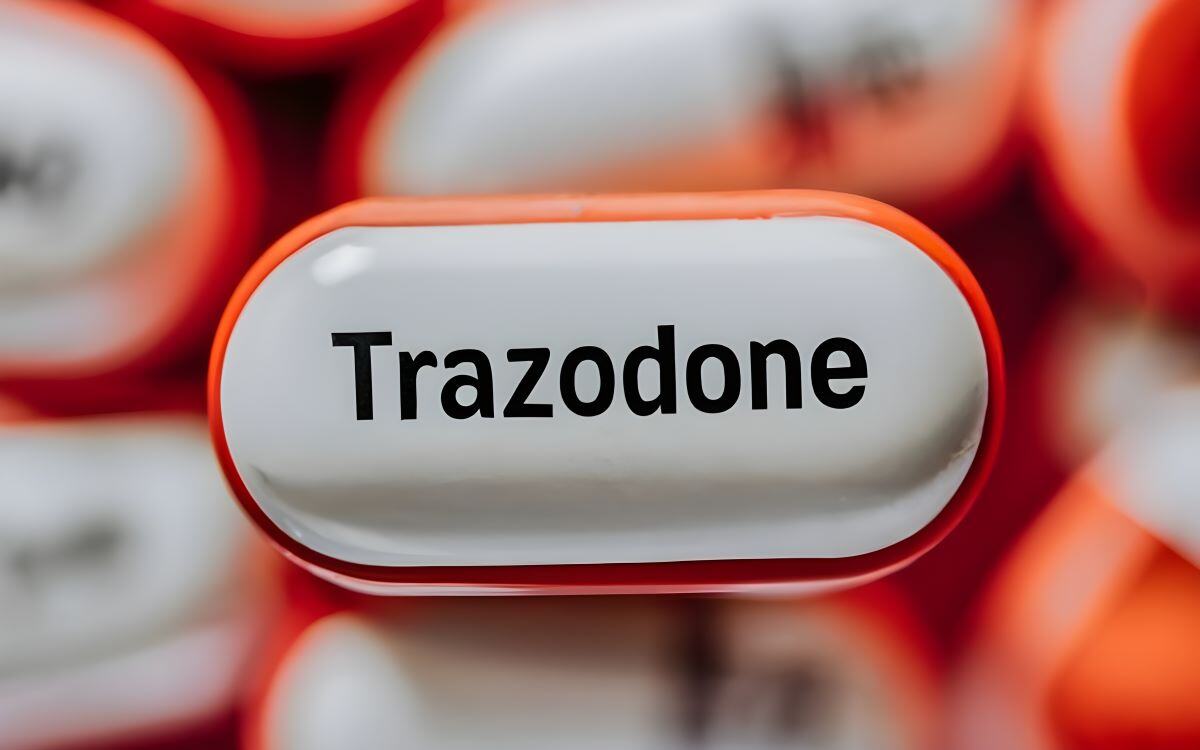Trazodone, a medication commonly used to treat depression and anxiety, is not considered a controlled substance by the DEA in the United States. This means it doesn't face the same strict regulations as drugs like opioids and stimulants.
Avenues Recovery Center is committed to providing valuable information on addiction and recovery to empower individuals with knowledge. There are so many substances out there, some with higher addiction risks than others, and all are classified differently. Let’s get further clarity on the question: Is trazodone a controlled substance? We'll explore related topics, including its classification, prescription status, and the potential for abuse.
Why is Trazodone not a Controlled Substance?
Trazodone is not a controlled substance because while some individuals may misuse it, trazodone's abuse potential is lower than many other substances. The decision to categorize a substance as a controlled substance is based on its potential for abuse and dependence. The DEA classifies controlled substances into five schedules based on their potential for abuse, and trazodone falls outside this classification. Its prescription status allows doctors to monitor and regulate dosage, preventing complications and potential misuse.
- How it Works:
- Trazodone affects serotonin levels in the brain to improve mood. It doesn't create the same addictive effects as substances like opioids.
- Low Risk of Abuse:
- Trazodone is less likely to be misused for a "high" because it doesn't produce strong euphoric effects.
- Medical Purpose:
- Doctors prescribe trazodone to treat depression and anxiety, emphasizing its intended use for mental health.
- Safety:
- Trazodone has a safe track record when used as directed, contributing to its non-controlled status.
Is Trazodone a Narcotic?
Trazodone, the generic name for a medication known for its antidepressant and hypnotic properties, is not classified as a narcotic. The term "narcotic" historically referred to any mood-altering drug relieving pain, but in the United States, it now commonly refers to opioids. Despite the interchangeable use of the terms "narcotics" and "opioids" by the DEA, trazodone does not fall under either classification. It does not produce the sedative effects typically associated with narcotics, like morphine or oxycodone do. While trazodone influences neurotransmitters in the brain, including dopamine and serotonin, it is still different from narcotics in its chemical composition and therapeutic effects.
Is Trazodone an Opioid?
Unlike drugs such as morphine or oxycodone, trazodone is not classified as an opioid. There is confusion about the difference between narcotics and opioids, especially because the DEA uses the terms interchangeably. Trazodone, however, lacks the chemical structure and sedative effects characteristic of opioids. Prescribed to treat depression, insomnia, and anxiety disorders, trazodone's mechanism of action involves influencing neurotransmitters in the brain, particularly serotonin and dopamine. It does a good job managing mental health conditions, but trazodone does not have the classification of an opioid.
Why is Trazodone Prescription-Only?
Trazodone requires a prescription for a few important reasons. Firstly, it can have side effects and interact with other medications, so a doctor carefully assesses an individual's health before prescribing it. Another key reason is to prevent misuse—while trazodone isn't highly addictive, supervision helps ensure it's taken responsibly.
A gradual and monitored dosing approach is essential. Trazodone takes time to show full effects, often up to two weeks. Starting with a low dose allows the doctor to observe and make adjustments as needed. As the individual stabilizes and improves, the dose may be lowered gradually.
Prescription regulation is crucial to avoid potential complications. High doses of trazodone can lead to serotonin syndrome, causing severe effects like an irregular heart rate and seizures. By keeping trazodone prescription-only, healthcare professionals can guide its use, ensuring safety and effectiveness for each individual.
Is Trazodone a Scheduled Drug?
No, trazodone is not a scheduled drug. The Controlled Substances Act classifies substances into one of five schedules based on their potential for abuse and accepted medical use. Trazodone is classified as a non-controlled substance because of its lower risk of abuse.
|
Classification Level |
Examples |
|
1. Controlled Substances |
Morphine, Oxycodone, Cocaine |
|
2. Prescription Medications |
Trazodone, Alprazolam, Atorvastatin |
|
3. Over-the-Counter (OTC) Medications |
Acetaminophen, Ibuprofen, Loratadine |
|
4. Herbal and Dietary Supplements |
St. John's Wort, Echinacea, Fish Oil |
|
5. Illicit Drugs |
Heroin, Methamphetamine, LSD |
Treatment for Trazodone Abuse:
In summary, trazodone is not a controlled substance, narcotic, or opioid. Its prescription status is due to its potential side effects and interactions. Understanding the nature of trazodone helps individuals make informed decisions about their health and seek appropriate help if faced with substance abuse issues. Avenues Recovery Centers is dedicated to promoting knowledge and providing assistance to those on the journey of recovery.
While trazodone is not highly addictive, misuse and abuse can still occur. If someone is struggling with trazodone abuse, seeking professional help is essential. Avenues Recovery Center offers comprehensive addiction treatment programs that address the root causes of substance abuse, providing individuals with the tools and support needed for recovery.
If you or someone you know is struggling with Trazodone misuse, reach out to Avenues Recovery Center today. Our dedicated and professional staff are waiting to help you. We use evidence based therapies and personalized treatment plans to give you the best chance at recovery. Help is just a phone call away! No one is beyond hope. Our highly trained staff have helped thousands of people break free of their addictions and they can help you too! Reach out to us today to take your first step towards a happier, healthier and addiction-free future.



